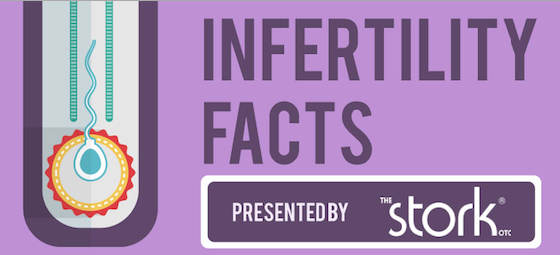Infertility is an equal opportunity problem. It impacts people of all walks of life, all ethnic and religious groups, and all personality types. You can be an “open person” and encounter infertility or you can be a “private person” and be infertile. Your personality style -- especially when it comes to openness and privacy -- will surely affect your experience during infertility.
Here are some observations of the “open” and the “private” when it comes to infertility.
Open people generally value being open. They like this quality in themselves. Many have found that their openness helps connect them to other people. There’s always lots to say, lots to talk about and many opportunities for common ground. It’s all good, right?
It’s all good as long as you don’t find yourself with a Greek chorus of on-lookers, commenting on (and questioning) every detail of a fertility treatment cycle — how many follicles are growing, the date of a retrieval, the number of embryos transferred, early positive pregnancy tests.
To their surprise, “open” people often find that they have provided others with too many details. Although their friends, family and acquaintances are responding appropriately by asking questions and remaining updated, it can begin to feel like too much sharing.
Another pitfall for “open” people comes when they face information that could or should be private. Take, for example, the decision to pursue egg donation. “Open” folks sometimes get into a “tell all” mode when discussing the possibility with friends and family members. Then, when they find themselves ready to actually try egg donation, there comes an unexpected longing for some privacy. In this scenario, they may want to wait until they are holding a real, live baby in their arms before telling others of the choices they have made.
Which brings us to the “private“ people …
Private people, sometimes, are not necessarily proud of being private: They simply believe it is the way they need to be. These are the folks who see no reason for sharing personal information with others. They feel that maintaining privacy is maintaining proper decorum, especially when it comes to work colleagues and others with whom they do not have close relationships. Then along comes infertility.
Infertility is consuming. Time-wise, it involves many doctor appointments and often, lots of time away from work. It is also isolating. An infertile couple so often stands on the sidelines while friends become pregnant, have babies, and then have second babies. Someone who attempts to maintain considerable privacy during infertility treatment risks being misunderstood. Colleagues may think you are looking for another job or facing a grave illness. Friends may assume you don’t want children or that you “think you can wait forever.”
Private people are sometimes reluctant to give people the small amount of information that would foster understanding and acceptance.
Most everyone who goes through an infertility diagnosis and treatment finds themselves reflecting on privacy and secrecy and looking at whether they should share particular information/feelings with others. What most discover is that -- whether they generally value openness or privacy – it’s important to respect the importance of privacy and to distinguish it from secrecy, which can be downright emotionally unhealthy.
So whether you see yourself as an “open” or “closed” person, think twice about what you are – or aren’t – sharing. You may want keep it in check on both ends.






Add a CommentComments
There are no comments yet. Be the first one and get the conversation started!